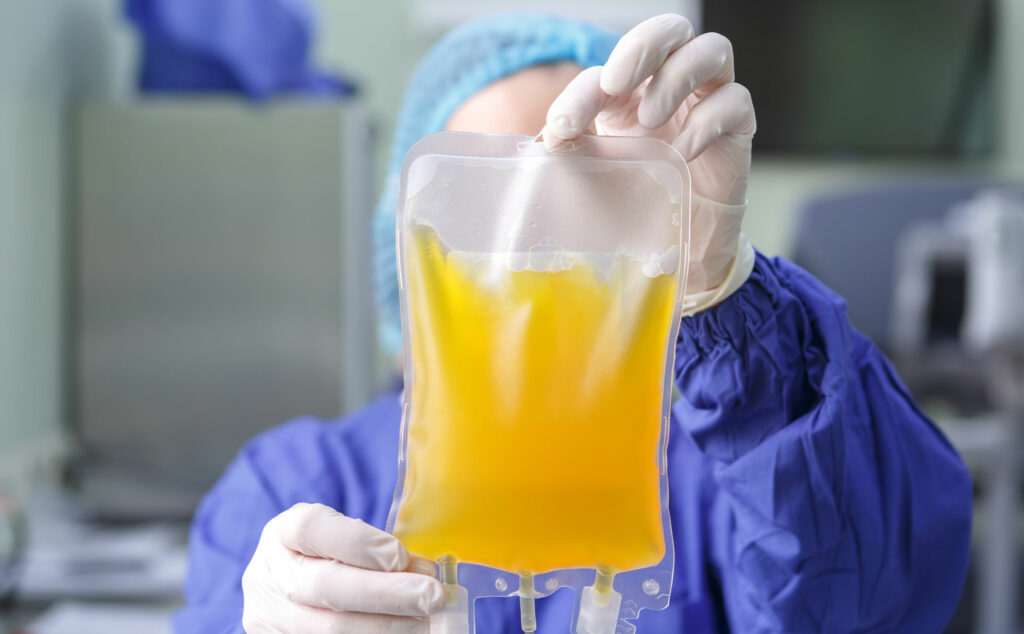The transparent or slightly yellowish liquid that makes up 55% of the blood within which the red and white blood cells and platelets are suspended, is known as blood plasma.
What is blood plasma?
Blood plasma is made up of water, mostly, along with minerals and many proteins focused on the proper functioning of our body.
The proteins found in plasma are:
- Globulins. They have an important role in the functioning of the liver, coagulation, and fighting infections.
- Fibrinogen. Protein focused on blood coagulation.
- Albumin. Once in the bloodstream, it helps keep fluid from leaking out of the blood vessels into other tissues, it also carries other hormones, vitamins, and enzymes in the body.
What is blood plasma used for?
Vital functions, including bleeding control or infection prevention, arise from plasma proteins. Due to this, people who cannot produce them on their own can develop diseases.
Due to its characteristics, blood plasma helps regulate blood pressure, PH, acid-base balance, and the total amount of blood in the body.
Various diseases can alter both the total concentration and the existing fractions.
How does the blood plasma test work?
Blood tests must be performed to identify blood plasma components, thanks to which it is possible to detect:
- Complete blood count (CBC) to measure the number of red and white blood cells, platelets, and hemoglobin.
- Known as a basic metabolic panel, blood chemistry measures the chemicals in the blood through plasma.
- The analysis of blood enzymes detects certain chemical reactions in the body for the detection of some pathologies.
- Blood clotting tests detect the patient’s coagulation level and identify disorders, if present.
If your treating physician has requested a blood plasma test, we can provide you with specialized care at ABC Medical Center’s Clinical Laboratory. Contact us!
Fuentes:
https://www.comunidad.madrid/hospital/centrodetransfusion/ciudadanos/es-plasma



